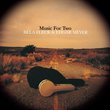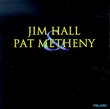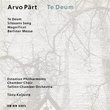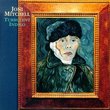| All Artists: Hilliard Ensemble Title: Perotin Members Wishing: 1 Total Copies: 0 Label: ECM Records Release Date: 4/26/1994 Genres: Special Interest, Classical Styles: Opera & Classical Vocal, Historical Periods, Early Music Number of Discs: 1 SwapaCD Credits: 1 Other Editions: Perotin UPC: 781182138520 |
Search - Hilliard Ensemble :: Perotin
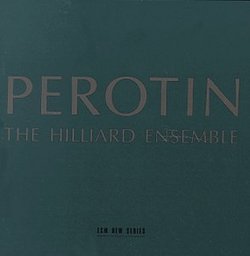 | Hilliard Ensemble Perotin Genres: Special Interest, Classical
It would be impossible to adequately describe the inherent haunting beauty of Perotin's music, or to fully detail its far-reaching influence in latter-12th-century France. The opening "Viderunt omnes" is a perfect illustra... more » |
Larger Image |
CD DetailsSynopsis
Amazon.com essential recording It would be impossible to adequately describe the inherent haunting beauty of Perotin's music, or to fully detail its far-reaching influence in latter-12th-century France. The opening "Viderunt omnes" is a perfect illustration of the surprising vitality and highly charged sense of forward motion that can be obtained with relatively simple rhythmic impulses and harmonic devices. The male voices of the Hilliard Ensemble generate an electrifying resonance that vibrates everything in the room that's not solid or nailed down. You can literally feel this music, ringing with natural harmonics and set to body-moving rhythms. Yes, it's religious music, intended for lofty cathedral spaces; but it moves, and it's moving, and this recording gives it to you full blast. --David Vernier Similar CDs
Similarly Requested CDs
|
CD ReviewsThe Middle Ages Brought to Life David J. Horne | Cincinnati, Ohio United States | 02/22/2000 (5 out of 5 stars) "I bought the Hilliard Ensemble's Perotin recording after reading the section on the evolution of medieval music from plainsong to organum in Grout's history of Western music. Grout praises Perotin's music, and this recording shows that praise to be well justified. The music is magnificent: dark, rich, full of mystery and awe, quintessentially medieval in sound. The Hilliard Ensemble's interpretations are superb and capture all the richness and power of this great idiom. The music communicates the reverance, awe, and, even fear, that the people of the Middle Ages must have felt in approaching a God who, after thousands of years of silence to most of the world, had revealed Himself to His creation. The Viderunt omnes, Veni creator spiritus and beata viscera are particularly fine, the Viderunt being possibly the finest surviving music of the age. I also highly recommend the Hilliard Ensemble recordings of Medieval English music, Walter Frye, the Machaut Mass, Gesauldo Responsoria, and Tallis. I also own Paul Hillier's recording, "The Age of Cathedrals" with his American ensemble, The Theatre of Voices, and value it highly." One of the Hilliard Ensemble's greatest works Mark Swinton | 11/24/2001 (5 out of 5 stars) "Perotin (or Magister Perotinus) was at the forefront of polyphony as it emerged in the twelfth century, together with Leonin (Magister Leoninus). Paul Hillier's scholarly sleeve notes describe the processes at work in his music far better than a short review could; suffice it to say that the style of some of the organum pieces has influenced many a twentieth century composer, including the minimalist Steve Reich, whose views are quoted in the notes. Perotin is not the only composer represented in the programme - some of the pieces are anonymous, although this does not detract from their musical strength in any way.In a nutshell, the organum works are founded on plainchant, which is sung as part of the performance. Some voices sing the chant in extremely long note values, so that the progressions of the melody are hard to distinguish. Meanwhile, higher voices dance through a series of rhythmically-charged motifs, overlapping with each other and producing an astonishing alternation of dissonances and consonances, breathtaking to hear. The opening piece, the Christmas motet "Viderunt omnes," is a particularly fine example of this.Other works in the programme sound closer to the sound world of Guillaume de Machaut: "Dum signillium" and "Veni Creator spiritus" are two such pieces, the former sung by tenors John Potter and Rogers Covey-Crump whilst the latter adds counter-tenor David James. Another short motet, "Isaias cecinit," repeats the same material for new verses of text, like a hymn tune with a descant at the end. I believe these three to be the most wonderful in the programme; especially, "Veni Creator" has a timelessness about it, enhanced by magical singing and the strong acoustics of Boxgrove Priory - one can almost imagine being in another century listening to this. Another fine moment is the chant "Beata viscera," powerfully sung by David James to a wordless drone.As early music recordings go, this one has much to commend it: masterful singing in a wonderfully atmospheric venue, excellent sound quality, thoughtful programming that sets long beside short and quiet beside loud. It is glorious music from first to last - truly wonderful!" Otherworldly S. Gustafson | New Albany, IN USA | 12/21/2000 (5 out of 5 stars) "The overall audio effect of this disc is truly haunting and otherworldly. The rich recording and the skilful use of vocal drones make you feel as if you are in a vast and dark cathedral, lit only by stained glass and candlelight.
This is an excellent performance. Though recorded by many other ensembles, the -Beata Viscera- on this record is soaring and definitive. This record would be appreciated, not only by confirmed early music fans, but by those who love all other sorts of slow and ethereal music. The harmonies are beautiful, and even sound somewhat edgy to the contemporary ear, largely because the modal melodies and open fifths do not map easily into our expectations for major or minor keys." |

 Track Listings (9) - Disc #1
Track Listings (9) - Disc #1



